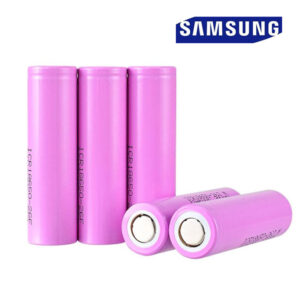are lithium batteries rechargeable
| M | T | W | T | F | S | S |
|---|---|---|---|---|---|---|
| 1 | ||||||
| 2 | 3 | 4 | 5 | 6 | 7 | 8 |
| 9 | 10 | 11 | 12 | 13 | 14 | 15 |
| 16 | 17 | 18 | 19 | 20 | 21 | 22 |
| 23 | 24 | 25 | 26 | 27 | 28 | 29 |
| 30 | 31 | |||||
Lithium batteries have revolutionized the way we power our devices, offering high energy density and longer-lasting performance. One common question that arises is, “Are lithium batteries rechargeable?” In this article, we delve into the fundamental characteristics of lithium batteries, highlighting their rechargeable nature and the benefits they bring to various applications.
Understanding Lithium Batteries: Lithium batteries, particularly lithium-ion (Li-ion) batteries, have become the preferred choice for powering a wide range of devices, from smartphones to electric vehicles. Unlike traditional disposable batteries, lithium batteries are designed with rechargeability in mind, allowing users to extend their lifespan through multiple charge and discharge cycles.
Rechargeable Chemistry: Lithium-ion batteries employ a unique electrochemical process that enables the movement of lithium ions between the positive and negative electrodes during charging and discharging. This chemistry allows for the reversible storage of energy, making these batteries rechargeable. When a device powered by a lithium battery runs out of charge, it can be easily replenished by connecting it to a compatible charger.

Benefits of Rechargeable Lithium Batteries:
Longevity: Lithium batteries boast an impressive cycle life, which refers to the number of charge and discharge cycles they can undergo before significant capacity loss occurs. This longevity translates to cost savings and reduced environmental impact compared to disposable batteries.
High Energy Density: Rechargeable lithium batteries are known for their high energy density, meaning they can store a considerable amount of energy in a compact and lightweight package. This feature is particularly advantageous for portable devices, where space and weight considerations are crucial.
Reduced Waste: By opting for rechargeable lithium batteries, users contribute to reducing battery waste generated from disposable options. This eco-friendly choice aligns with sustainable practices and supports a greener future.
Convenience: Rechargeable lithium batteries eliminate the need for frequent battery replacements, saving users time and hassle. Devices can be quickly recharged, ensuring they’re ready for use whenever needed.

In answer to the question, “Are lithium batteries rechargeable?” the resounding answer is yes. Lithium batteries, especially the widely used lithium-ion batteries, are designed to be recharged, offering exceptional performance, longevity, and environmental benefits. Whether you’re powering a smartphone, laptop, or electric vehicle, choosing rechargeable lithium batteries can lead to cost savings, reduced waste, and a more convenient and sustainable power solution.solution
You can also get help from our expertise by commenting on your problem below,Thank you



